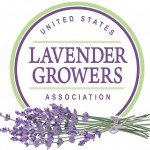Certified Organic: To Be or Not to Be?
Q&A with Lila Avery-Fuson
 Going “Green” and “Organic” is a trend on the rise, but what is the best approach for your farm business? When can a farm business use the term “Organic”, and what is the process required by law to become “Organic”? This may depend on your demographics and what you are producing and/or selling as Organic. Therefore, to assist our members and their customers in better understanding what is “Certified Organic” and what is not Certified Organic, the USLGA Newsletter Committee spoke with Lila Avery-Fusion of Central Coast Lavender Farm in California who gathered all the pertinent information for her farm business and completed the process of becoming a Certified Organic farm in the State of California.
Going “Green” and “Organic” is a trend on the rise, but what is the best approach for your farm business? When can a farm business use the term “Organic”, and what is the process required by law to become “Organic”? This may depend on your demographics and what you are producing and/or selling as Organic. Therefore, to assist our members and their customers in better understanding what is “Certified Organic” and what is not Certified Organic, the USLGA Newsletter Committee spoke with Lila Avery-Fusion of Central Coast Lavender Farm in California who gathered all the pertinent information for her farm business and completed the process of becoming a Certified Organic farm in the State of California.
When can a farm use the term ORGANIC and use the USDA ORGANIC seal to describe their farm practices and products?
You may only use the word ORGANIC if you are certified by the USDA. You can then also use the Organic Seal on the farm and product information, label and advertising. It is illegal to use these words unless you are certified. Violations may lead to compliance and enforcement actions, including fines up to $11,000 per violation. Additionally, your organic certificate may be suspended or revoked.
How do I become certified organic?
To become certified, you must apply to a USDA-accredited certifying agent. They will ask you for information including:
- A detailed description of the operation to be certified.
- A history of substances applied to land during the previous three years.
- The organic products grown, raised, or processed.
- A written Organic System Plan describing the practices and substances to be used.
The certification and annual re-certification processes are described to the right and below respectively. To learn more about the becoming certified to the USDA organic standards and to find a certifying agent, visit here.
How Much Does Organic Certification Cost?
Actual certification costs or fees vary widely depending on the certifying agent and the size, type, and complexity of your operation. Certification costs may range from a few hundred to several thousand dollars. Before you apply, it is important to understand your certifier’s fee structure and billing cycle. Typically, there is an application fee, annual renewal fee, and assessment on annual production or sales, and inspection fees. Once you are certified, the USDA Organic Certification Cost-Share Programs can reimburse you up to 75 percent of your certification costs. To learn more about this and other financial assistance programs, visit
Is there a transition period?
Yes. Any land used to produce raw organic commodities must not have had prohibited substances applied to it for the past three years. Until the full 36-month transition period is met, you may not:
- Sell, label, or represent the product as “organic”
- Use the USDA organic or certifying agent’s seal USDA provides technical and financial assistance during the transition period through its Environmental Quality Incentives Program (EQIP). Learn more here.
Benefits of Organic Certification
Organic certification verifies that your farm or handling facility complies with the USDA organic regulations. This certification allows you to sell, label, and represent your products as organic. Farms all over the world may be certified to the USDA organic standards. Most farms and businesses that grow, handle, or process organic products must be certified. Certification allows you to call your product “organic” and to use the USDA seal.
Becoming certified organic helps farmers:
- Receive premium prices for their products
- Access local, regional, and international markets
- Protect natural resources
- Support local economies
- Access additional funding and technical assistance programs
What kind of documentation is required for the Certified Organic Farmer?
The bottom line, farming requires record keeping from A to Z. As a small-scale farmer whose only crop is lavender, it’s not such a big deal at all. Lavender, being a resistant plant, requires zero herbicides and pesticides, resulting in no records in that category. Being a sustainable row crop we do not need a cover crops, so no records needed. The Annual Inspection! Sounds intimidating and a bit invasive, but it’s not. Your local certifier will make an appointment for an on-site farm visit. Your notes and records are reviewed and any updates or changes are noted. Your inspector is your friend and will do what is needed to guide you through the process as needed. Then you stroll around your farm with the certifying inspector, which is a great time to show off your hard work and educate about lavender. Now you are ready to proudly display the USDA Certified Organic Seal on all your certified organic products, farm information and marketing advertisements.
